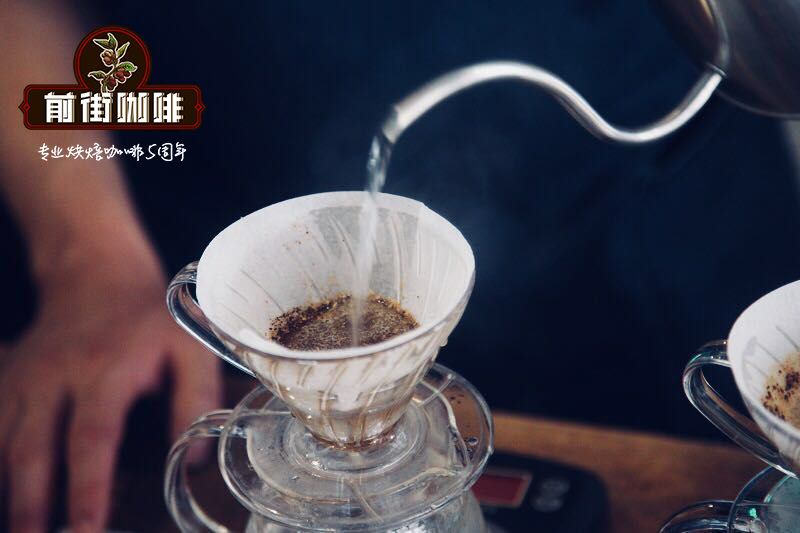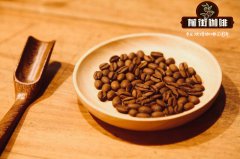Kenya Oakland Manor Coffee is good? how about Kenyan Oakland Manor Coffee?

Professional coffee knowledge exchange more coffee bean information please follow the coffee workshop (Wechat official account cafe_style)
Oakland Manor is one of the oldest and largest coffee farms in Kenya. The farm dates back to colonial times and has long been owned by Socfinaf, Kenya's largest coffee grower at the time, which owns about 12 estates and covers 37960 acres. Over the years, the company has been one of only three licensed grinding agents in Kenya and has had a significant impact on the development of the country's coffee industry.
Today, since Nairobi is just outside the boundaries of farms, many of these farms have been divided, redistributed and / or incorporated into the urbanization process. Oaklands was acquired by Kofinaf about a decade ago, and Coffee Management Systems (CMS), one of Kenya's most important marketing and agricultural extension services companies, took over farm management in 2017. In line with their reputation, CMS is making full use of the potential of Oaklands. They are working to expand and improve the farm's specialty coffee products and invest in coffee processing plants and central workshops located within the farm.
The manor is located at a considerable height of 1575 meters above sea level. The soil here is crimson volcanic rock, which is common in this area. This part of Kenya has two different rainy seasons: March to May and October to December. Irrigation water is used to supplement the needs of coffee farms between seasons. The famous Ruiru River and two dams (Karimu and Bradgate) provide good access to water throughout the year, and four boreholes scattered around the farm ensure that there is enough water for homes and processing.
The property is currently overseen by Levine Nyakundi, who works closely with CMS to ensure the implementation of best practices. Throughout the year, there are three managers and 66 regular workers, all of whom live on the farm with their families. At the peak of the harvest season, the huge workforce grew to about 700. These workers are transported by buses and extra trucks during the picking rush. The farm has adequate pharmacies for workers and their families, a primary school for workers' children and children in neighboring communities, day-care facilities for children under the age of five, and nutrition programmes for them.
Workers' duties include weeding, pest control, pruning, irrigation and fertilization. Seasonal work includes security, picking, pulping, coffee drying and manual sorting, as well as weighing, bagging and delivery to the group's dry cleaners.
Coffee is harvested twice a year. In the process of harvest, people have made a lot of efforts to ensure the quality. All pickers are well trained in picking methods, picking only the most ripe cherries each time. The cherries are delivered to the "factory" on the same day (as the Kenyan washing station / wet mill is called), sorted out any damaged or immature cherries, and then pulped with a large drum grinder on the farm. The pulped coffee is fermented for about 12 hours, and then fully washed to remove all residual mucus.
When it is ready, the coffee is washed and graded. After the coffee is washed, it is sent to the factory's soaking tank and recycled, clean water is drilled from the farm well for 24 hours. Once soaked and cleaned, the parchment is sent to a pre-dried table (with a slightly larger screen hole) for about two hours. Here, it will be classified again because it loses excess surface moisture before it is sent to the main drying bed.
The drying time is usually about 7 to 14 days. Every two hours or so, the coffee is turned over and sorted, and the coffee is covered with Nylex at the hottest time of the day, which can prevent the coffee from cracking and even make it dry. Occasionally, depending on the weather and quantity, coffee may be sent to the dryer, although this is not the first choice. After reaching the optimum humidity of 10.5-11%, the coffee is bagged and stored in a large warehouse on the farm.
END
Important Notice :
前街咖啡 FrontStreet Coffee has moved to new addredd:
FrontStreet Coffee Address: 315,Donghua East Road,GuangZhou
Tel:020 38364473
- Prev

Essex plus Sheffield Coffee producing area-what are the flavor and taste characteristics of Jima coffee?
Professional coffee knowledge exchange more coffee bean information please follow the coffee workshop (Wechat official account cafe_style) front street-Ethiopia Yegasuefei, Qima production area introduction Ethiopia is one of the major producers of Arabica coffee in Africa, producing the best Arabica coffee in the world. It is said that coffee was first discovered by shepherds in Essekafa.
- Next

Do Kenyan round beans taste good with hands? what does Kenya pb grade mean?
Professional coffee knowledge exchange more coffee bean information please follow the coffee workshop (Wechat official account cafe_style) in Kenya, AA, AB and other levels are used to classify the lots, they are just indicators of screen size. They don't have any sign of cup quality. In Kenya, the AA level is equivalent to a 17 or 18 screen (17 or 18 64 inches). AA grade cups are available in
Related
- Beginners will see the "Coffee pull flower" guide!
- What is the difference between ice blog purified milk and ordinary milk coffee?
- Why is the Philippines the largest producer of crops in Liberia?
- For coffee extraction, should the fine powder be retained?
- How does extracted espresso fill pressed powder? How much strength does it take to press the powder?
- How to make jasmine cold extract coffee? Is the jasmine + latte good?
- Will this little toy really make the coffee taste better? How does Lily Drip affect coffee extraction?
- Will the action of slapping the filter cup also affect coffee extraction?
- What's the difference between powder-to-water ratio and powder-to-liquid ratio?
- What is the Ethiopian local species? What does it have to do with Heirloom native species?

